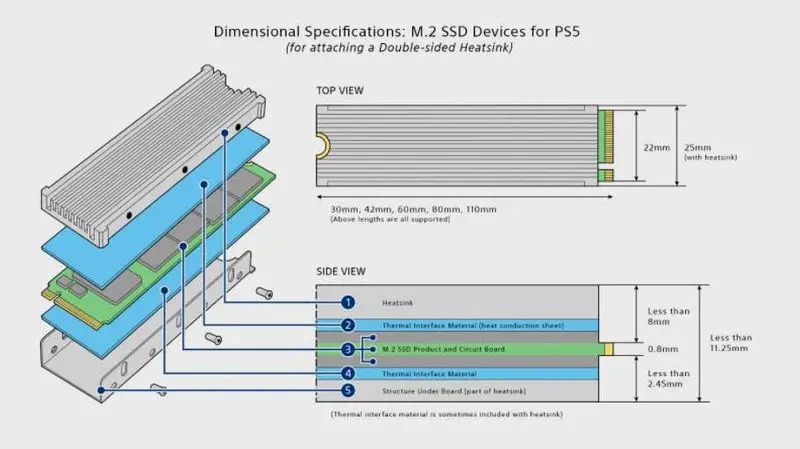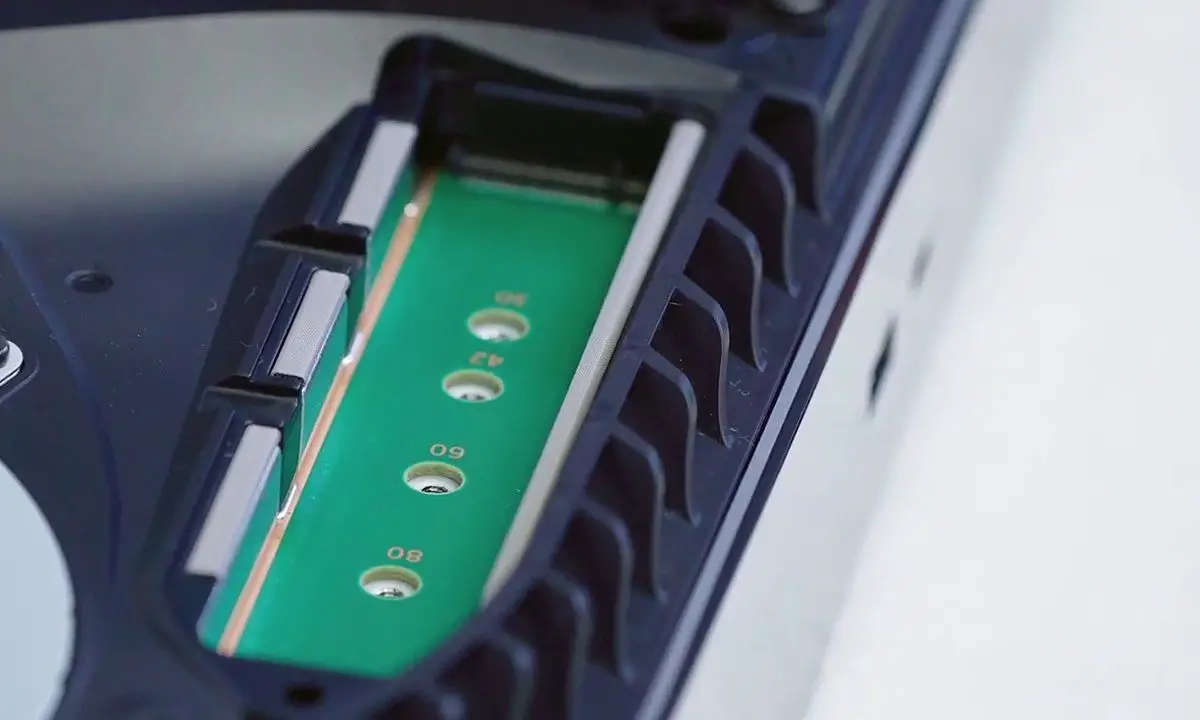Sony confirmed the requirements for an SSD to work with PS5. Many users of this console were eagerly awaiting this information and are that, in the end, having 825GB of storage capacity, of which only about 660GB are free, makes it almost mandatory to consider expanding its capacity by adding an SSD.
Sony has finally confirmed what requirements an SSD compatible with PS5, its next-generation console, must meet. In order to install an SSD compatible with PS5, we will have to wait for the release of the next major firmware update that the console will receive. Its arrival date has not yet been specified, but it is already in beta version, so we can say that its arrival is practically just around the corner and that the forecasts that pointed to this summer will be fulfilled. It goes without saying that if we try to install an SSD without having updated it, it will not work.
Before going into the requirements for a PS5-compatible SSD, we would like to remind you that this console comes preconfigured with an SSD that is capable of 5.5GB/s speed. That level of performance is totally out of reach for PCI-E Gen3 x4 type drives, which means that only those based on the PCI-E Gen4 x4 standard will give their best on Sony’s console.

Requirements to be met by a PS5-compatible SSD
Obviously, it must be an M.2 format drive, it has to be compatible with the PCI-E Gen4 x4 NVMe standard, and Sony recommends that it has a speed of 5.5GB/s in sequential reading. On this topic, it is important to note that this is a recommended value, i.e. in theory it is not a minimum requirement, so we could mount an SSD with a lower speed, although we could obviously experience performance issues, especially in those exclusives designed to take full advantage of the original PS5 SSD.
A PS5-compatible SSD can use the different variants included in the M.2 form factor, namely 2230, 2242, 2260, 2280, and 22110 versions. In terms of capacity, Sony states that we can only install SSDs with a minimum capacity of 250GB, and with a maximum capacity of 4TB. This means that if we try to mount a 128GB drive it should not work, at least in theory, since when we put it in context we see that it acts as an apparently excluding requirement.
Another essential requirement that any PS5-compatible SSD must meet is to have a passive cooling system. If we try to install an SSD that does not have such a cooling system, it will work if it meets the rest of the requirements, but we will end up having problems due to heat buildup and high operating temperatures. That is, at least, what Sony implies by listing this requirement.
Otherwise, the SSD must be less than 110mm (length) x 25mm (width) x 11.25mm (height), including the passive cooling system. As a reminder, PS5 does not support Host Memory Buffer technology, so those SSDs that do support it may offer sub-par performance.
It will be interesting to see how a PS5-compatible SSD that doesn’t reach 5.5GB/s will perform, and what impact it will have on exclusive titles with a high dependency on this storage unit.





